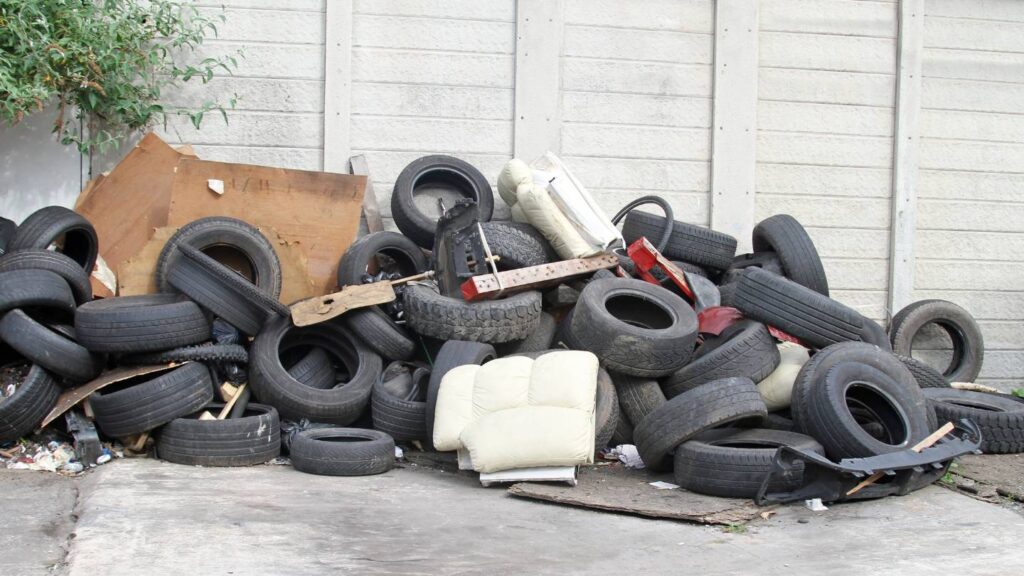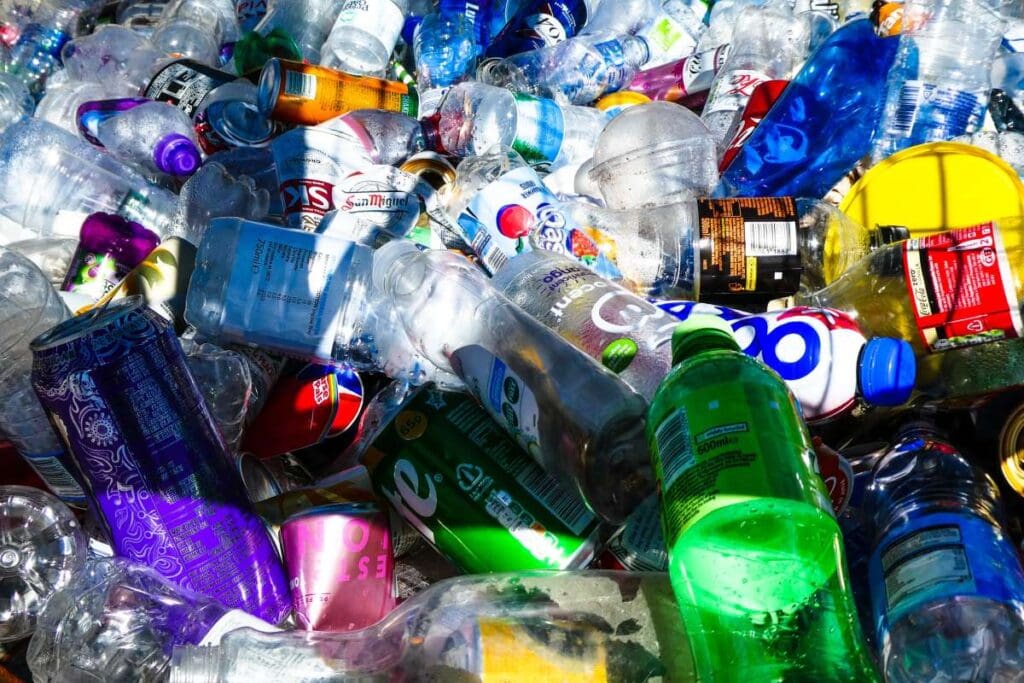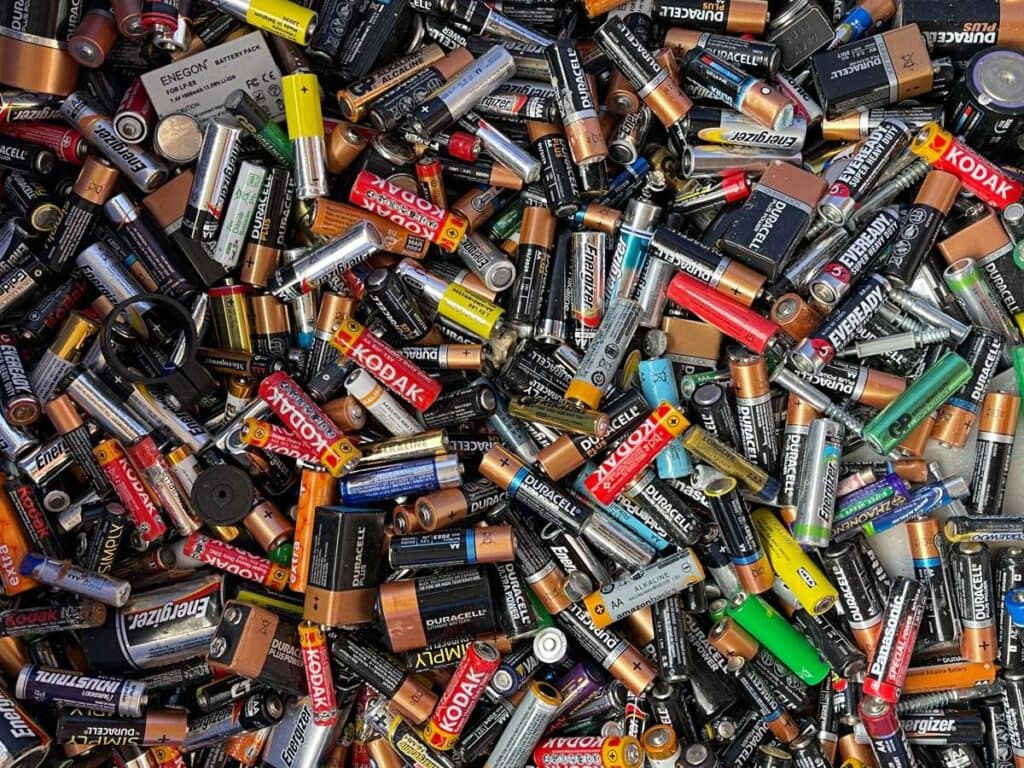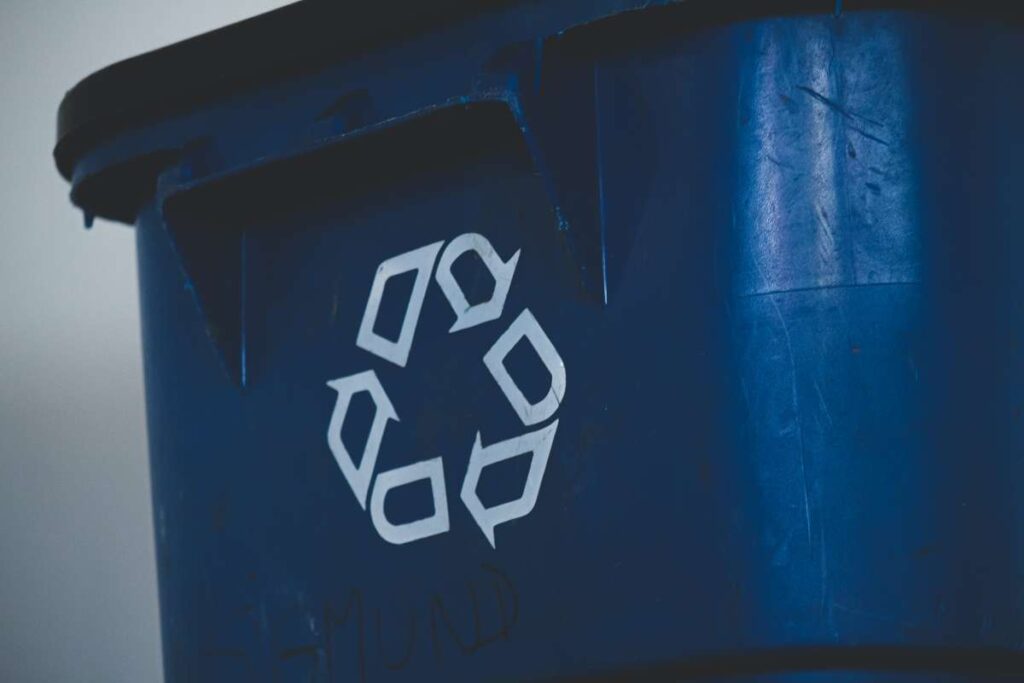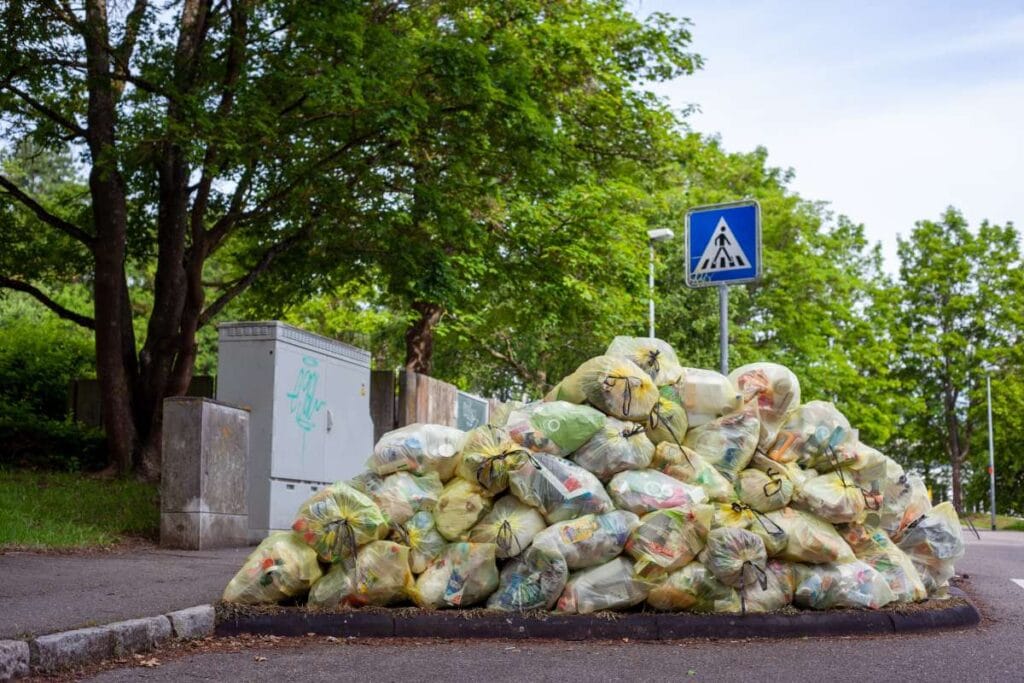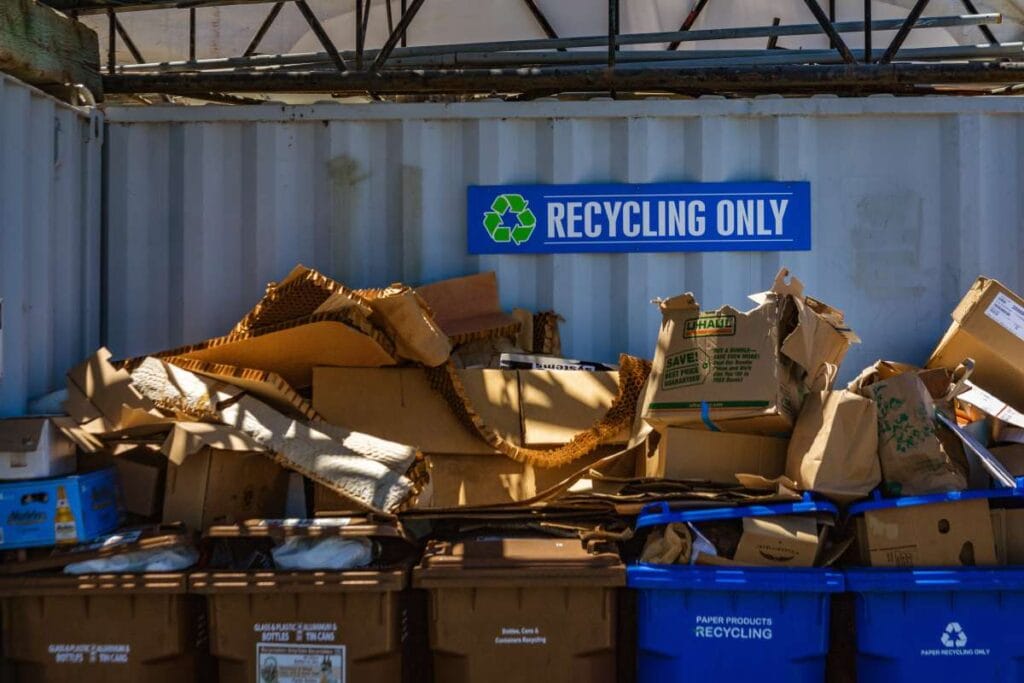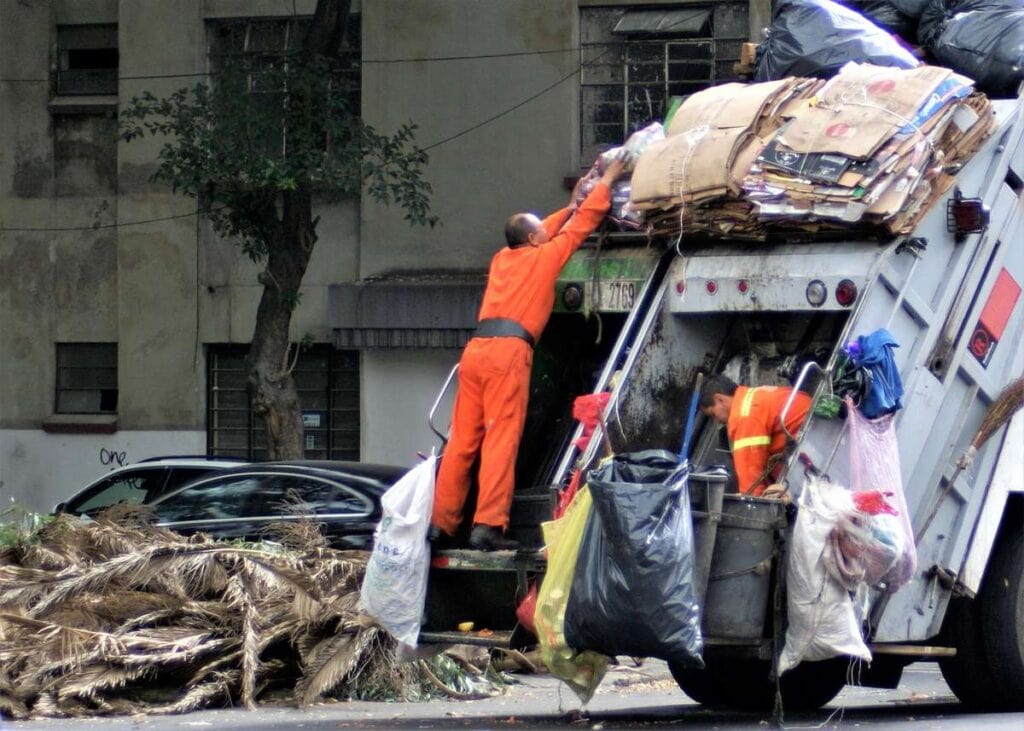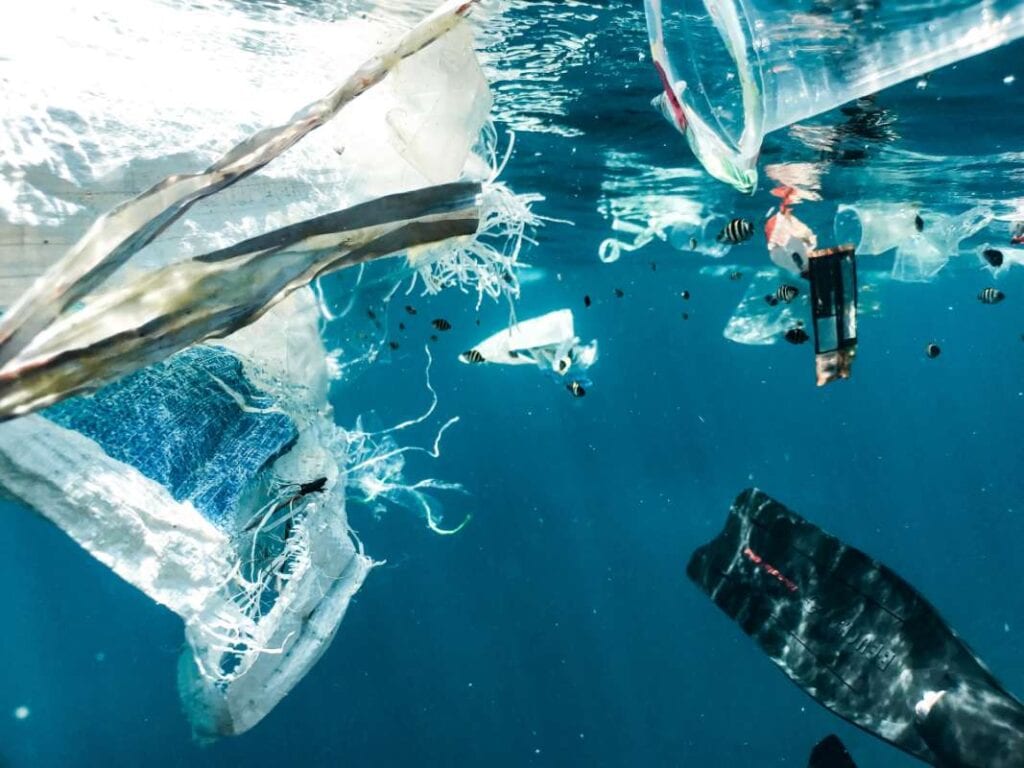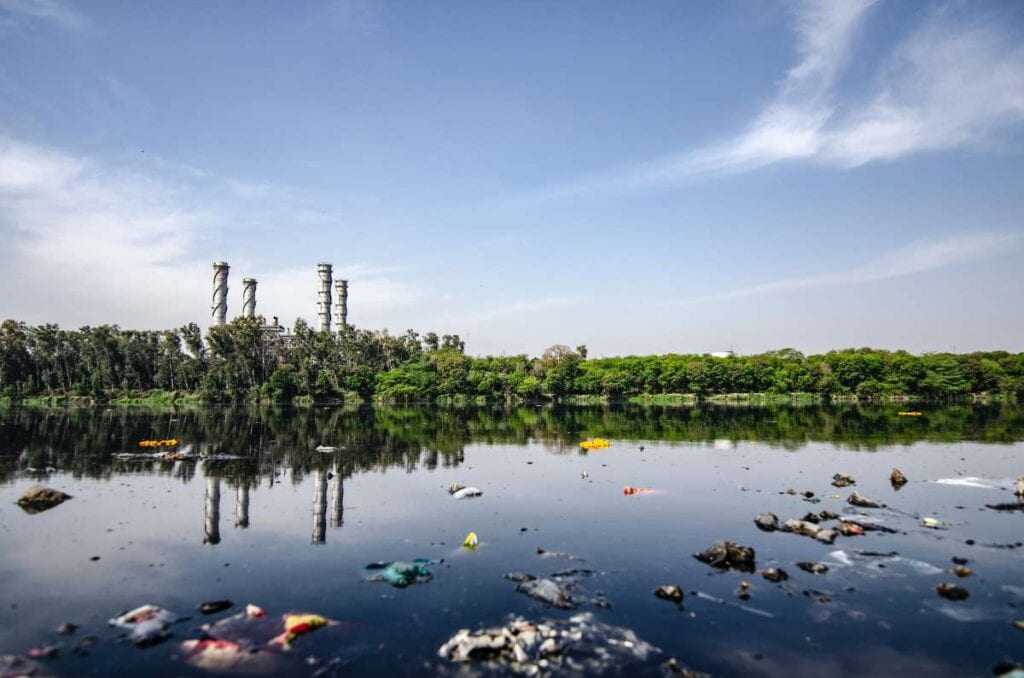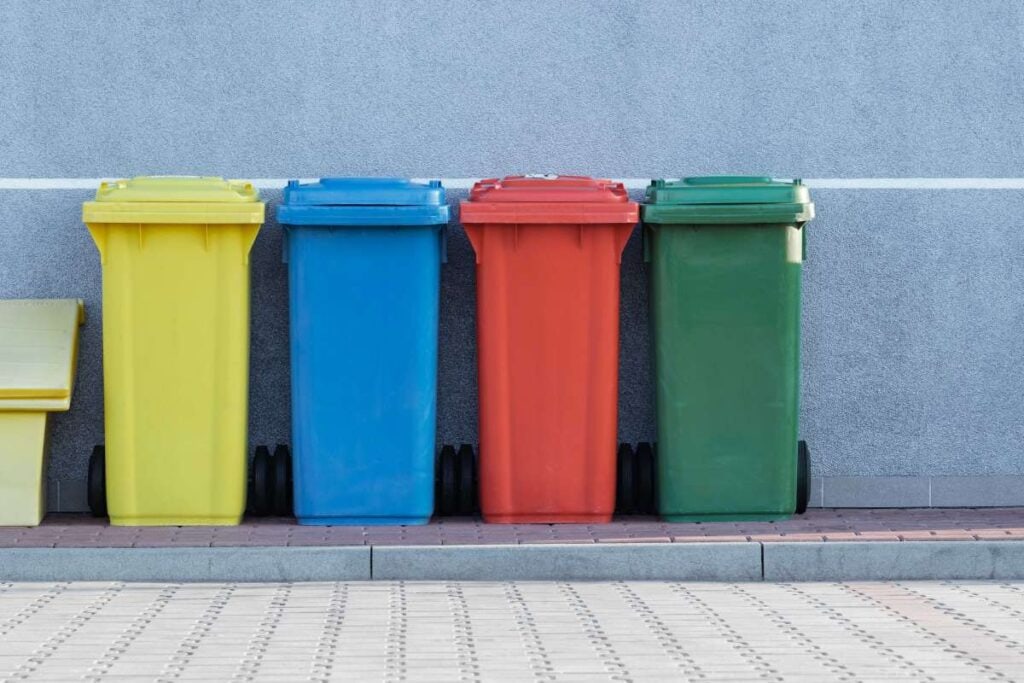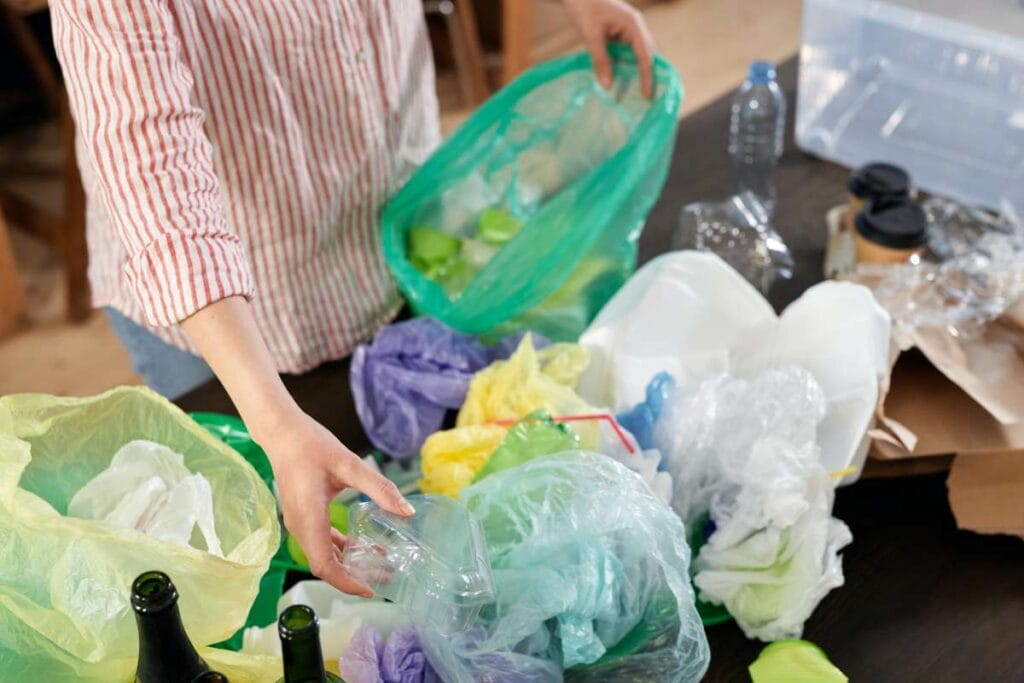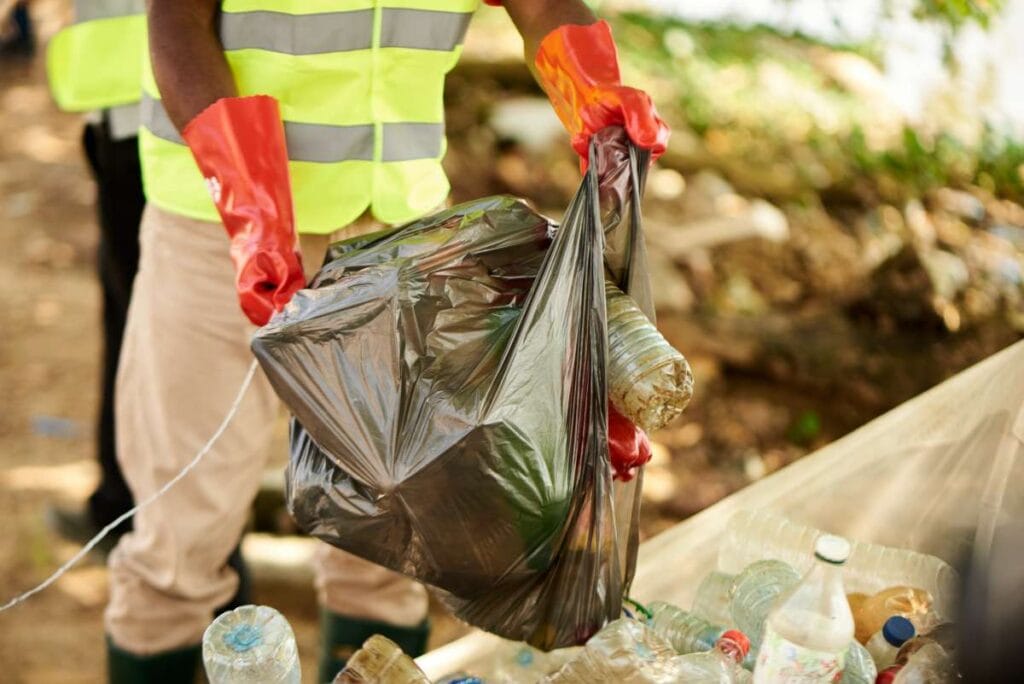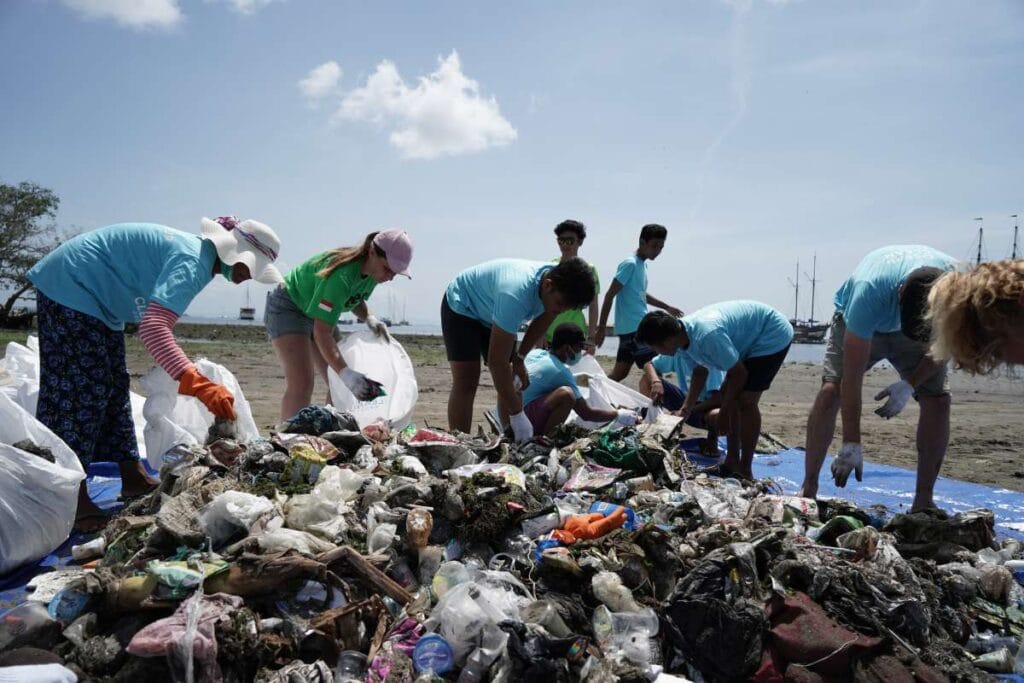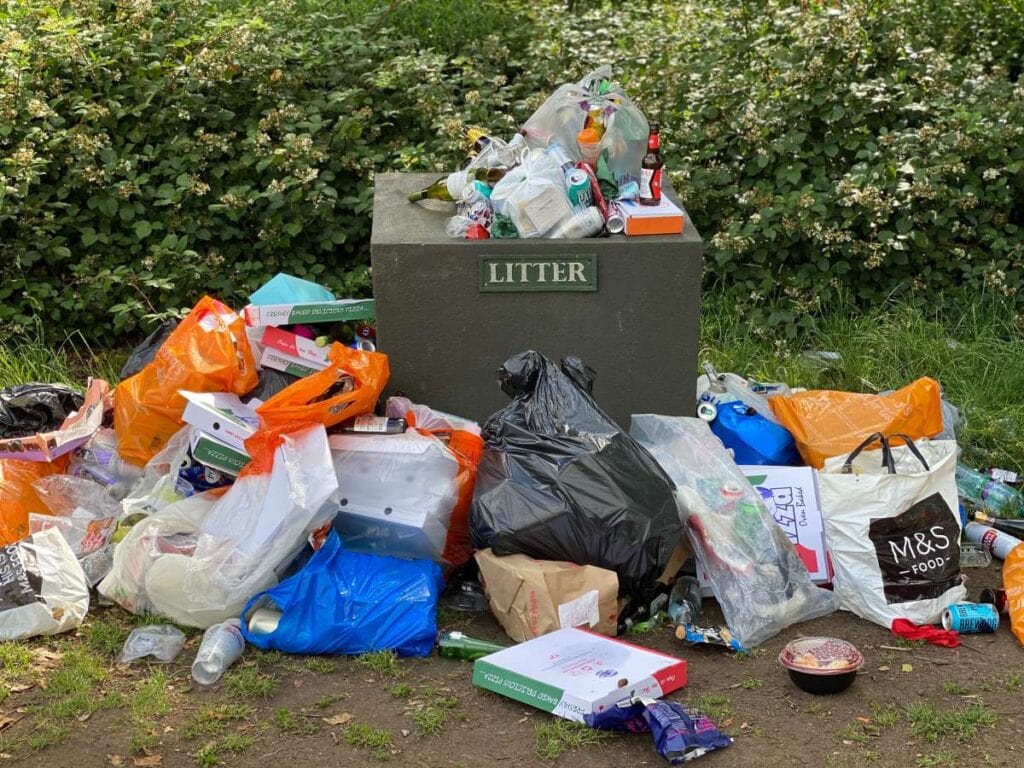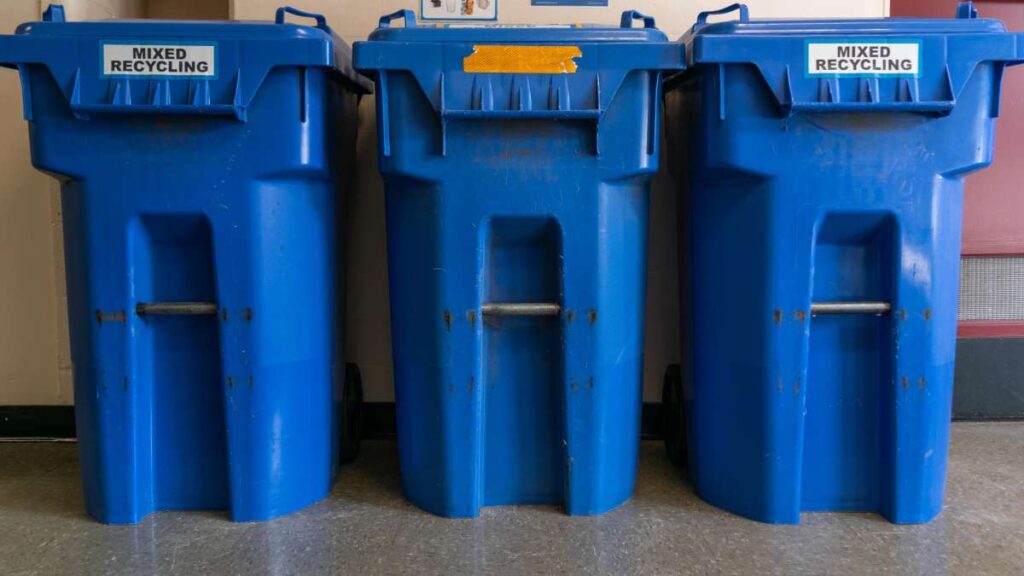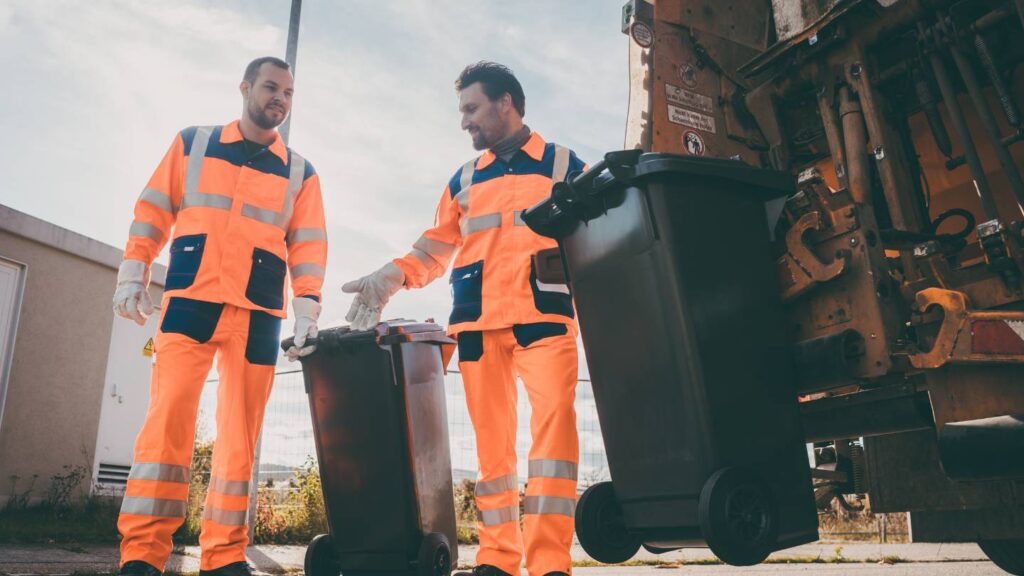We release over 2.12 billion tonnes of garbage into the atmosphere every year. The problem is that after our trash has left the neighbourhood, most of us completely disregard it.
But this trash still has a way to travel before it reaches a recycling centre or a landfill. Polluting the environment, harming people's health, hurting the economy, and adding to global warming are all consequences of improper trash disposal.
We should verify each item before throwing it away to avoid the wrong kind of trash being disposed of. Even a little effort like this goes a long way towards keeping our planet tidy and lovely.
What Is Hazardous Waste?
Harmful substances that could endanger people or the environment are considered hazardous waste. Because they aren't biodegradable, they may necessitate additional processing steps, such as solidification, before disposal. Incinerators or a landfill for hazardous trash may also receive them.
The following characteristics of materials can lead to its categorisation as "hazardous waste":
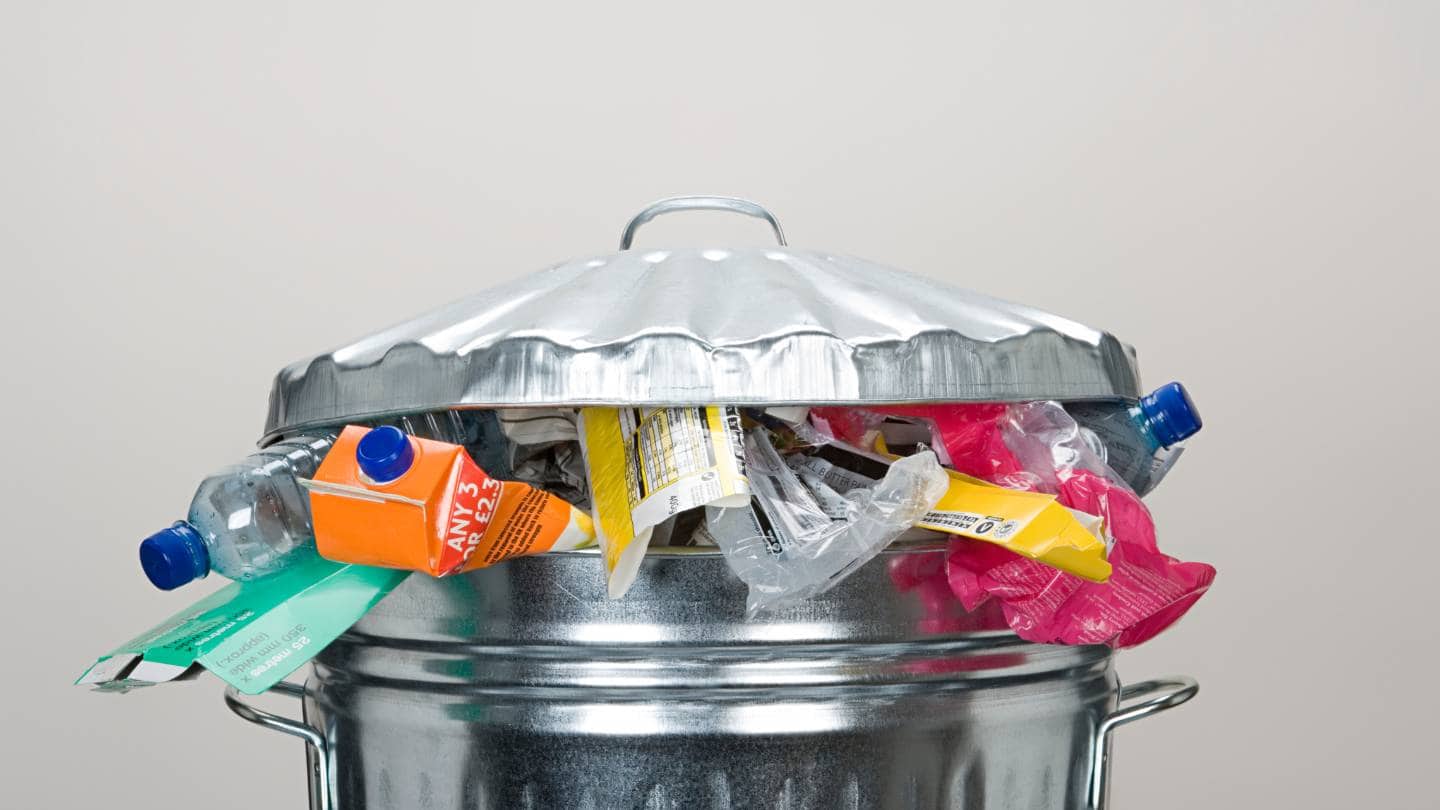
Ignitability
A flammable material is one that readily ignites when exposed to air. Fires can start unintentionally if combustible objects are not disposed of properly.
This has the potential to release harmful gases into the air, harm the environment, and injure people in the area.
Certain substances can catch fire, such as:
- Paints made of oil.
- Petrol and fuel Aerosols
Reactivity
Also included are potentially explosive elements that can trigger an explosion when mixed with water or other liquids. Particular disposal procedures are also necessary for these.
Reactive materials can be found in various electronic components, such as batteries.
Corrosivity
Substances that erode an object's surface or structure are known as corrosives. For instance, metal containers can rust over time and leak dangerous substances when exposed to powerful acids or cleaning solutions.
Here are some materials that can cause corrosion:
- Acid for batteries
- Cleaners for the home
- Removable paint
Toxicity
Products that cause poisoning or other negative effects (like skin irritation or respiratory difficulties) when they come into touch with living beings are known as toxic substances.
Toxic substances can be described as follows:
- Medical waste, asbestos, and mercury
- The use of herbicides
- Contaminated materials
Improper Waste Disposal and Its Repercussions
The entire globe is affected by the terrible effects of improper trash disposal. The following are some of the unfavourable outcomes that might result from improper waste management:
The repercussions of incorrect trash disposal are illustrated in this infographic.
The landfill becomes contaminated.
The landfill can deteriorate over time due to hazardous contaminants corroding the bottom liner and contaminating the soil. Dangerous chemicals threaten public health when they seep into sewage systems and, in extreme circumstances, the underground water supply.
Also, surface or subsurface fires in the landfill might be caused by combustible materials.
It leads to contamination of the air, water, and soil.
These harmful materials add to pollution, whether thrown in a landfill or left lying about.
Soil contamination renders a region unusable for farming. Another example is how disease-carrying bugs thrive in contaminated water.
In addition, these materials contribute to air pollution and the emission of greenhouse gases as they break down. This is another reason why burning municipal solid garbage in the open is not advisable.
Water Contamination
Groundwater gets contaminated with chemicals leached into it from hazardous trash. Pollutants from garbage can also leak into water sources. Animals and humans alike may suffer health problems due to polluted water. The presence of untreated sewage in water bodies poses a threat to aquatic life.
Air Contamination
It is imperative that hazardous waste materials, including acids and bleach, be disposed of in the appropriate containers bearing the appropriate labelling. When it comes time to dispose of these materials, it's crucial to have competent advice. This webpage and other service pages could help you find the right solution.
The ozone layer is vulnerable to the chemicals and gases produced by the combustion of paper and plastic in landfills. Once released into the air, dioxin-releasing wastes and methane gas from decaying wastes threaten human health. Furthermore, decaying garbage in landfills can release flammable gases into the atmosphere.
Contamination Of The Soil
Polluting the soil is one of the most significant outcomes of incorrect garbage disposal. Chemicals leak into the earth from some trash that makes it to landfills. Take plastic bottles as an example. When decomposing, they emit DHEA, a carcinogen that can cause various health issues.
A major problem that hinders plant growth and poses risks to animals and humans that eat contaminated plants is soil contamination.
Everyone should make recycling a regular part of their routine. Recycling paper, plastic, metals, and even old electronics is possible. Fewer garbage ends up in landfills if people sort and segregate recyclables properly.
Those Who Work in Sanitation Are Put at Risk Because Of It
Improper trash disposal endangers sanitation workers. Garbage pickers and landfill workers are exposed to harmful substances.
The annual death toll from improperly handled trash can reach one million, and that doesn't even take into consideration the countless more who will endure lifelong health consequences as a result of their exposure to harmful compounds.
It Kills Off Native Plants and Animals
Local flora, fauna, and aquatic life are all at risk from hazardous waste. Trees and bushes suffer double damage from polluted soil, losing water and nutrients and becoming poisoned. The landfill hurts local plant development.
Garbage can be a food source for animals, but if they ingest harmful substances, they may become ill or even die. Lakes and ponds in the area could become choked if the garbage makes it there. Fish and other aquatic creatures will suffer as a result of this.
A Public Health Emergency Could Occur As a Result
Another potential outcome of incorrectly disposing of hazardous trash is a public health emergency.
Pests and disease-carrying agents, such as rodents, flies, and mosquitoes, find a fertile breeding ground at the dump site. Infectious diseases can spread rapidly when these agents are used.
Water and food pollution can cause serious illness or death if consumed unknowingly. People can experience a wide range of distressing health problems, including infections of the blood, gastrointestinal problems, skin irritations, and heart diseases.
The improper disposal of sewage is another major issue regarding public health. At least 2 billion people may be getting their water supply from sources tainted with human waste in regions where trash management is inadequate. Inappropriate sewage disposal practices have the potential to cause the spread of dangerous diseases like:
- food poisoning
- dysentery
- infectious diseases
It Harms The Economy
Therefore, solid waste, chemicals, and other hazardous items are detrimental to ecosystems and economies. Living in an unsanitary environment is caused by stinky landfills or trash building up along the roadside.
In addition, the town's image will tarnish over time, discouraging prospective investors, tourists, and migrants and ultimately stunting the town's economic growth.
In a similar vein, rural regions will suffer the most. Farmers will experience a decrease in agricultural yield due to air pollution. So, it impacts their health and ability to make a living.
Because of it, the planet is getting hotter.
Hazardous waste contributes to global warming.
Rising temperatures directly result from the increasing emission of greenhouse gases, which act as a greenhouse and trap heat from the sun in the atmosphere. This results from severe weather, higher sea levels, and less ozone.
Earth is thus becoming an increasingly uninhabitable place daily unless we intervene to limit the rate of global warming.
Consequences of Poor Waste Management on the Environment
Environmental harm is one of the most visible consequences of improper waste management. The obvious consequence of inappropriate garbage disposal is the destruction of ecosystems, water, habitats, and soil due to environmental pollution. Both immediate and distant outcomes may result from these repercussions.
Improperly disposed of chemicals cause health risks and damage to biodiversity when they make it past wastewater treatment facilities and into drinking water or the oceans. In addition to contaminating other food sources, pollution and poisons can harm fisheries, vegetation, and cattle.
The overgrowth of algae in the world's oceans, caused by human activity and waste, produces toxic chemicals that harm humans and marine life. Damage to the environment beyond repair, affecting people for a long time, is the most evident and immediate result of incorrect garbage disposal.
Overworked Facilities for Waste Management
Our waste management system is overburdened when companies need to recycle or dispose of trash correctly. Currently, 25% of materials sent to recycling centres are not recyclable, indicating that a quarter of all materials need to be fit for recycling.
However, there is economic loss, inefficiency, and environmental contamination when recyclable materials end up in landfills instead of recycling centres. Direct touch, gases, or explosives provide additional risks to those working in waste management and sewers. To properly dispose of recyclables, call a resource recovery specialist.
Ruined Credibility in the Workplace
You must educate yourself on the consequences of improper garbage disposal and local and federal rules if you want to maintain your professional reputation. Although it may be time-consuming and costly to comply with complex health, safety, and environmental standards, the alternative is much worse.
Compliance can save your company thousands of dollars annually if handled by professionals. Many forward-thinking businesses need to be more content with just complying; they're also trying to cut costs and get an advantage in the market.
Detrimental Impact On Human Health
Residents near landfills or other polluted areas are especially at danger from improper trash disposal. Trash collectors face health risks. Problems with growth, reproduction, skin irritations, respiratory problems, and blood infections are common outcomes of exposure to improperly managed trash.
Reasons Why Waste Management Is Inadequate
Improper management of trash occurs for multiple causes. One is people's ignorance regarding hazardous trash; some have yet to learn what kinds of things are considered dangerous or how to dispose of them correctly.
Inaccessibility is another factor that contributes to incorrect waste disposal. Many individuals, including company owners and local officials, are very concerned about the contamination of their food, land, and water sources caused by improper waste disposal, toxic trash, and sewage. This is especially true in developing or rural regions. The problem is that they may need the means to dispose of it properly so that the contaminating cycle will continue.
Business and municipal leaders are also major contributors to improper trash disposal. Even though people are becoming more aware of the risks and consequences of incorrect sewage disposal, practices like incineration persist, releasing toxic chemicals into the environment.
Citizens worried about the environment might reach out to their favourite firms or elected officials to demand that they implement policies that reduce trash pollution.
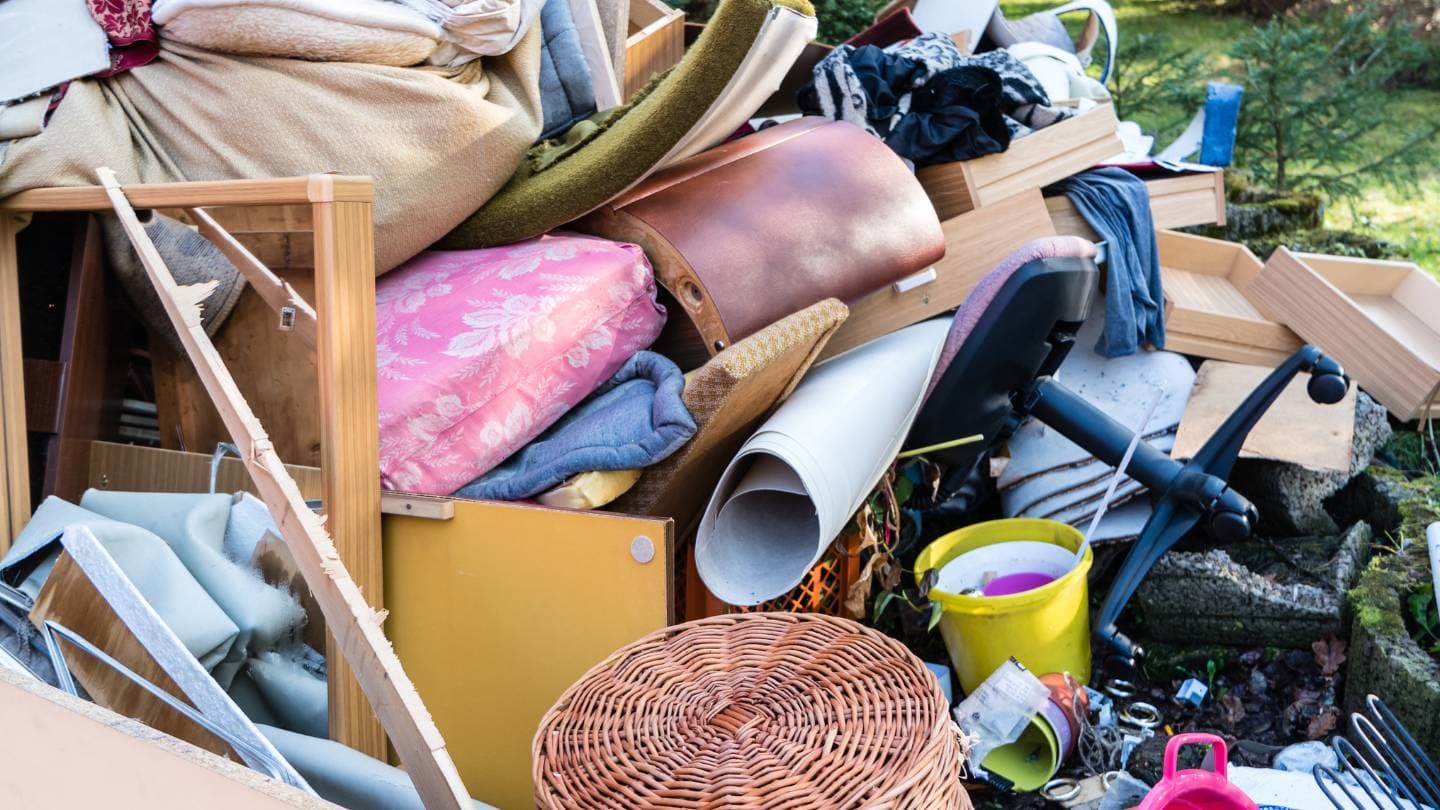
Strategies for Prevention
Maintaining a safe and clean environment can be greatly improved by preventing hazardous materials from being disposed of in ordinary trash. Indeed, we may protect our world by adhering to simple preventative measures like the ones outlined below:
- Ensure the item isn't dangerous before throwing it away, or let the people in waste management know.
- Cut back on consumption whenever you can. Be more eco-conscious by reusing and recycling content instead!
- Contact a waste management company if you're looking for recycling centres or other alternatives to traditional trash disposal.
- Please help keep your neighbourhood clean by raising awareness about the importance of recycling and correcting people's ignorance about what happens to garbage after it's been taken out of their homes or workplaces.
Conclusion
Over 2.12 billion tonnes of garbage are released into the atmosphere each year, but improper disposal can lead to pollution, health issues, economic harm, and global warming. Hazardous waste is defined as materials that pose a threat to people or the environment, such as flammable, reactive, corrosive, or toxic substances.
Improper waste disposal can lead to landfill contamination, soil contamination, water contamination, air contamination, and ozone layer vulnerability. It is crucial to dispose of hazardous waste materials properly and have competent advice when disposing of hazardous materials.
Regular recycling can help reduce landfill waste and protect sanitation workers from harmful substances. The annual death toll from improperly handled trash can reach one million, with countless more suffering lifelong health consequences.
Hazardous waste poses significant threats to local flora, fauna, and aquatic life. Polluted soil and water can harm plants and animals, leading to disease-carrying agents, water and food pollution, and the spread of infectious diseases. Inadequate waste management can also harm the economy, as solid waste, chemicals, and other hazardous items harm ecosystems and economies. The planet is getting hotter due to greenhouse gas emissions, making it uninhabitable.
Environmental harm is a significant consequence of improper waste management, with chemicals causing health risks and damage to biodiversity. Overworked waste management facilities and inadequate waste management systems contribute to environmental contamination. Employees and businesses must educate themselves on the consequences of improper waste disposal to maintain their professional reputation.
Improper waste management is due to ignorance, inaccessibility, and business and municipal leaders' inability to implement policies that reduce trash pollution. Prevention strategies include ensuring hazardous materials are not disposed of, cutting back on consumption, and being eco-conscious. Raising awareness about recycling and correcting ignorance about garbage disposal can help maintain a safe and clean environment.
Content Summary:
- Over 2.12 billion tonnes of garbage is released into the atmosphere annually
- Improper trash disposal leads to pollution, harm to health, economic damage, and contributes to global warming
- Hazardous waste includes flammable, reactive, corrosive, and toxic substances
- Improper waste disposal contaminates landfills, air, water, and soil
- Contaminated landfills can harm public health and cause fires
- Harmful materials in landfills contribute to pollution and greenhouse gas emissions
- Groundwater and water sources can be contaminated by hazardous waste
- Chemicals and gases from landfills can harm the ozone layer and human health
- Soil contamination from improper garbage disposal can hinder plant growth and pose risks to animals and humans
- Recycling can help reduce the amount of garbage in landfills
- Improper trash disposal endangers sanitation workers and can lead to health issues and death
- Hazardous waste harms native plants, animals, and aquatic life
- Improper garbage disposal can lead to a public health emergency, spread diseases, and cause various health problems
- It negatively impacts the economy, discourages investment and tourism, and affects farmers' livelihoods
- Hazardous waste contributes to global warming and its consequences, such as severe weather and rising temperatures
- Improper waste management destroys ecosystems, habitats, water, and soil, and harms biodiversity
- Overworked waste management facilities and improper recycling lead to economic loss and environmental contamination
- Improper garbage disposal can damage a company's credibility and reputation
- Improper trash disposal poses health risks to residents near landfills and trash collectors
- Exposure to hazardous waste can cause growth problems, reproductive issues, skin irritations, respiratory problems, and blood infections.
Frequently Asked Questions
Dumping waste into water bodies, especially oceans, can harm marine life. Plastic waste, in particular, can be ingested by marine animals, leading to injuries, fatalities, and ecosystem disruption.
Incorrect waste disposal, especially in urban areas, can attract disease-carrying pests like rats and flies. This increases the risk of disease transmission to humans, posing a public health threat.
Yes, improper waste disposal can lead to leachate, a liquid that forms as waste decomposes. If not managed properly, leachate can contaminate groundwater, affecting water sources and ecosystems.
Landfills produce methane, a potent greenhouse gas. Improper rubbish disposal exacerbates climate change by releasing these gases into the atmosphere, contributing to global warming.
The economic consequences include the costs associated with cleaning polluted areas, healthcare expenses due to related illnesses, and potential damage to tourism and property values in affected areas. Proper waste disposal helps mitigate these economic burdens.
